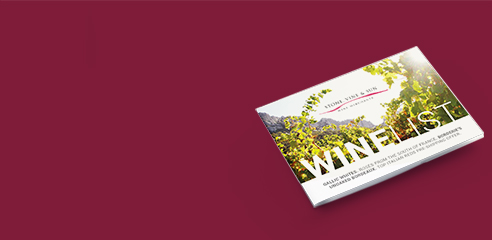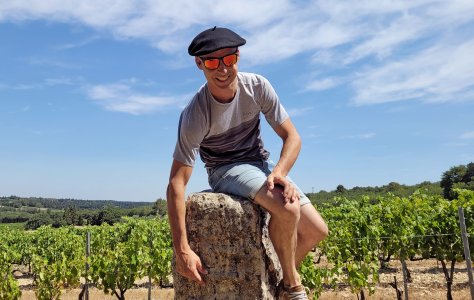USA
California
Here at SVS we find California tricky. Wine produced in the Sunshine State seems to fall into two camps - the huge sea of cheap, nastily sweetened fruit-juice purveyed by Gallo et al; and the highly superior wines of boutique wineries with prices to match.
The unique feature of California is of course, the grape variety Zinfandel. Related to the Italian Primitivo, this was introduced to the States around 1830. If cropped low it makes terrific wine, either very fresh and fruity for immediate consumption or denser and more black-fruited for keeping. It’s a great accompaniment to a good big steak.
Our grower: the great Paul Draper at Ridge
The Pacific Northwest: Washington State & Oregon
In these two states, unlike California, the wine industry is built on an artisanal scale, with around 350 small-scale wineries in each. It has not been easy persuading folk with tiny productions - most here under 10,000 cases a year - and solid domestic markets to export for the first time.
Washington State
Though Washington State has a coastline on the Pacific, the centre of wine production, Walla Walla, lies well inland, east of the Cascade Mountains which act as a barrier to rainfall: indeed around the town only about 8-10 inches of rain falls every year. Here the northerly latitude - around 46 degrees - ensures long hours of sunshine during the summer, but cool autumn nights allow a long ripening season, delivering fine aromatics and good natural acidity. Soils are a fascinatingly complex mix of loess, silt and stones, shaped by titanic Ice Age floods and volcanic activity. Washington has a flourishing and very fast-growing wine industry.
Our grower: Seven Hills Winery, Walla Walla
On a corner in downtown Walla Walla (hardly a metropolis), tucked away behind the façade of a former furniture factory, is the Seven Hills Winery, established in 1988 as one of the first five wineries in the area. Run by dynamic winemaker Casey McClellan, Seven Hills is so highly regarded - acclaimed in 2003 as one of the top seven Washington Wineries - that I was surprised we were the first in this country to import their wines. Here Bordeaux varieties produce splendid results: these are superbly soft, ripe wines with a nice bit of bottle age, which regularly win 90+ scores in Robert Parker’s Wine Advocate.
Oregon
Three days at Oregon Pinot Camp in 2007 - tastings, lectures, vineyard tours and dinners (superb wines from the early 90s served) - have converted me (Simon Taylor) into a total Oregon Pinot-phile. All those Kiwi pretenders making intense but beetrooty Pinots down in Central Otago can go hang, this is the one place in the world which can engender wines to rival Burgundy.
This should not be surprising: after all the northern Willamette Valley, source of 82% of the state’s wine, is the same latitude as Burgundy, and has a very similar climate, albeit being drier in summer (which might necessitate drip irrigation but does keep the vines healthier), and mildly cooler - 68 degrees F being the July average. Harvests are usually at the end of September. As an aside, it’s a bit of a shame that, rather than challenge Burgundian and California Chardonnay, Oregon has chosen instead to specialize in Pinot Gris.
From first plantings in the 1960s, Oregon wine folk have ploughed a charmingly alternative course to big neighbour California; and the second generation of growers continue to focus on social issues, for example vineyard sustainability and rights for vineyard workers. But restless intelligence and experimentation, combined with a friendly spirit of co-operation, is producing plenty of fantastic wine right now.
Our grower: Brooks , McMinnville
Brooks winery was founded by Portland-born Jimi Brooks, who trained in Beaujolais before working at Willakenzie and Maysara, whilst founding Brooks in 1998. His sudden death in 2004 might have ended the venture, but so highly regarded was he in the Oregon wine community that family and friends rallied round to keep it going: now the wine is made by Maysara top gun Chris Williams, with Jimi’s sister Janie running the business as regent for Jimi’s young son Pascal. A new winery attests to their success.
Jimi was a firm believer in organic cultivation: now only organically farmed grapes are used, with the Eola Hills vineyard being farmed bio-dynamically. He was also a lover of Riesling. We offer several of their wines: Amycas, an amazing cocktail of Alsace varieties (37% Pinot Blanc, 22% Pinot Gris, 21% Riesling, 18% Gewurztraminer, and 2% Muscat); a terrific dry Riesling; and two Pinot Noirs.



